Oncologist Dr Zankhana Buch, AyurVAID Hospital tells us why these foods could help you lead a healthy lifestyle.
Given the fast paced, sedentary lifestyles we all lead, it is not uncommon to be diagnosed with illnesses.
Add to this, the imbalanced food habits of people, and one is destined to put their health and body at risk.
To overcome this, one needs to correct their lifestyle as early as possible.
Making minor changes in one's diet can make a huge difference in the long run.
In Ayurveda, you can fight these disorders through a corrective diet regimen.
An Ayurveda diet not only nourishes the body, but also restores balance of Tridoshas which is very essential for maintaining health.
Ayurveda categorises the nature of a person in three Doshas
Vata: People with a predominant Vata Dosha display physical and emotional characteristics linked to the elemental qualities of air. They have fast metabolisms.
Pitha: People with a Pithha Dosha display an inherent fire/agni elemental character. Their desires (appetite, sexual) are strong in nature.
Kapha: People with Kapha Dosha display an inherent earth elemental character. They have a moderate or low appetite and digest food slowly.
Ayurveda experts have laid down various categories of food with their properties in detail.
Presenting a list of foods you must include in your diet:
1. Godugdha (Cow Milk)
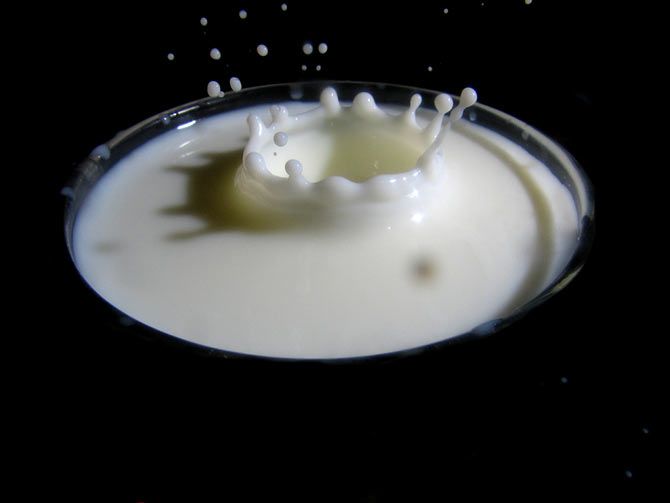
Amongst the milk of all animals, cow’s milk is considered to be the most beneficial because it gives mental and physical strength.
Cow’s milk promotes long life, it is a rejuvenator, good for those emaciated after injury (especially to the chest), increases intelligence, and helps easy movement of the bowels.
It cures exhaustions, dizziness, toxicity, dyspnoea, cough, severe thirst and hunger, long standing fever, dysurea and bleeding diseases.
Photograph: Andrew Magill/Creative Commons
2. Goghruta (Ghee)
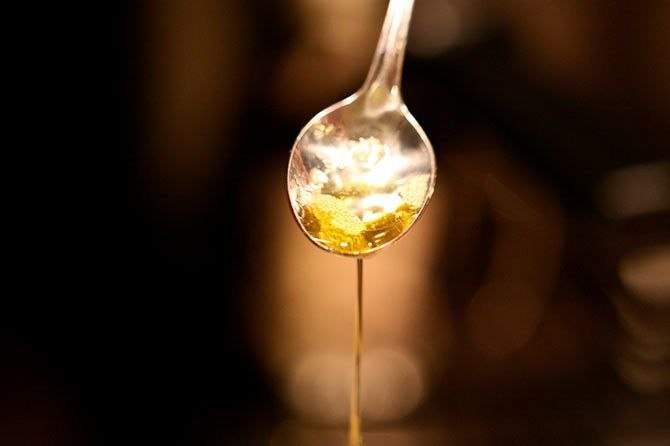
Ghee from eight different animal’s milk, ghee made from cow’s milk is said to be superior.
It is good for the eyes, stimulates digestion, supports glow and beauty, enhances memory and stamina, promotes longevity and protects the body from various diseases.
Photograph: Chiot's Run/Creative Commons
3. Rakta Sahli (Red Rice)
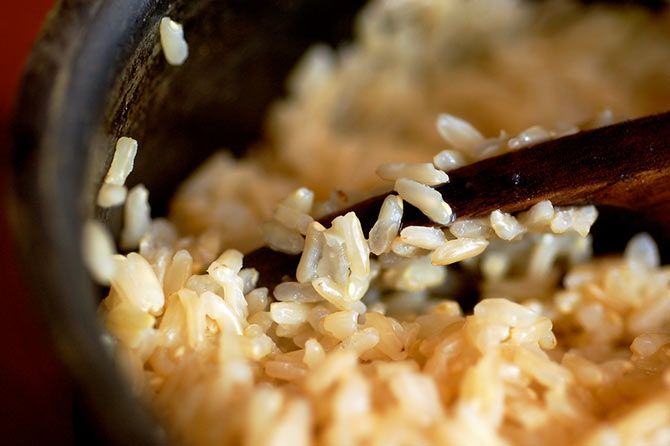
Red rice is sweet, light, unctuous and strengthening in nature.
It not only imparts taste but also stimulates the digestive fire and relieves burning sensation.
It imparts strength and complexion, treats vitiations of three doshas, improves vision, enhances voice, increases quality of semen and cures thirst and fever.
Photograph: Jacqueline/Creative Commons
4. Amalaki (Amla)
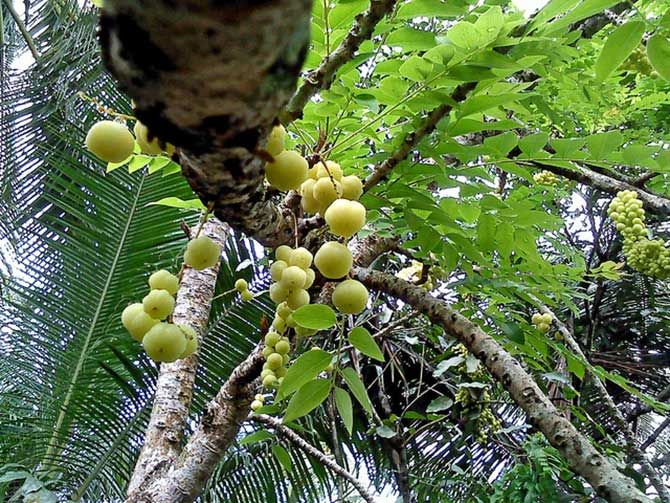
The word Amla refers to sour.
Amla or Amalaki is used both as food and medicine.
This little fruit is stuffed with innumerable health benefits that can ever be imagined.
In Charaka Samhita it is categorised under a group of herbs that are useful in fever, cough, cold and skin diseases.
It can be consumed on daily basis.
Amla helps balance Pitta.
Photograph: Nishan Chathuranga/Creative Commons
5. Puran Guda (Jaggery)
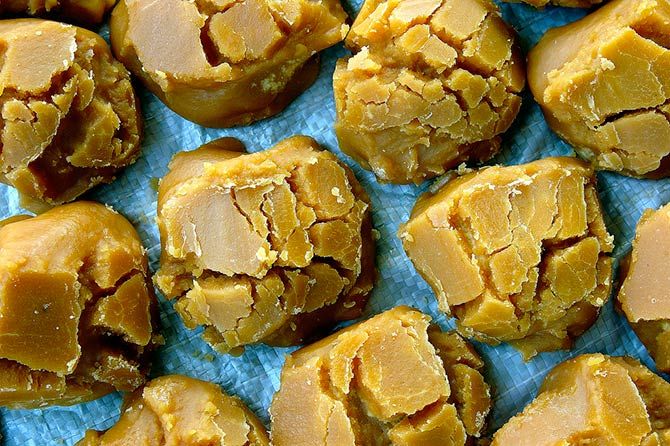
Jaggery is extensively used in many Indian foods and in various Ayurveda medicines. It is a good substitute for sugar and comes with a lot of health benefits.
It promotes digestion strength, cleanses intestines and feaces, cleanses urinary bladder and urine, cleanses stomach, promotes taste, good for heart, good for fever, relieves excess body weight, relieves fatigue and is useful in curing anemia and urinary tract diseases.
That explains why jaggery forms the base of all Asavas and Arishtas -- fermented liquid Ayurveda medicines.
It is good for all the three doshas.
Photograph: Giridhar Appaji Nag/Creative Commons
6. Patola (Snake Gourd)
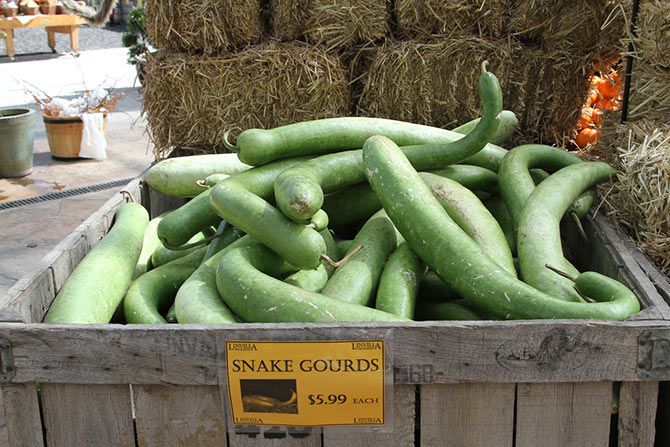
Charaka Samhita (Early text of Ayurveda compiled by Charaka) describes it as an herb that relieves the feeling of food satiation and excessive thirst, Charaka has mentioned this as one of the herbs which is useful in pruritus, acne and urticarial.
It is also good for the skin and helps improve complexion.
It is a natural aphrodisiac, improves taste and provides strength for digestion.
It is useful in anorexia, itching sensation, skin diseases, fever, burning sensation, cough, cold, purification of blood.
It not only balances Kapha but also Tridosha.
Photograph: Jim/Creative Commons
7. Saindhava (Rock Salt)

It is slightly sweet in taste and its potency is cold and is light for consumption.
Though salt taste usually increases pitta, Saindhava Lavana, being cold in potency helps balance Pitta.
Rock salt helps relieve chest congestion due to sputum accumulation.
It is one of the rare Ayurveda substances that balances all the three Doshas.
Photograph: Mamichan/Creative Commons
8. Vatad (Almonds)
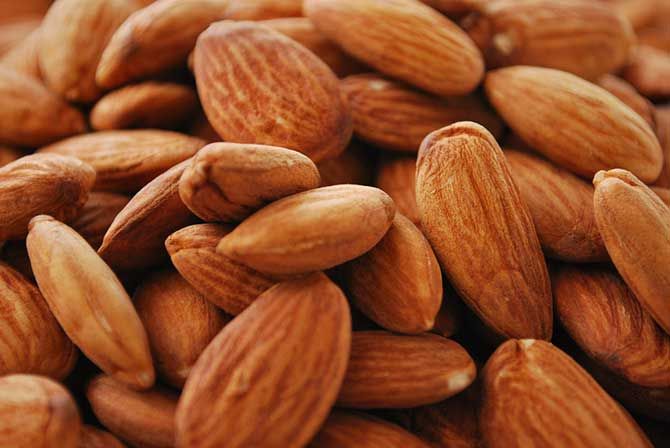
Almond is said to have the qualities of being an aphrodisiac.
It gives strength and stability to body tissues.
Almonds help the formation of new blood cells, hemoglobin and play a major role in maintaining smooth physiological functions of brain, nerves, bones, heart and liver.
It is a good source of protein and fat and is known to fight cholesterol.
Photograph: Harsha K R/Creative Commons
9. Anjira (Fig)
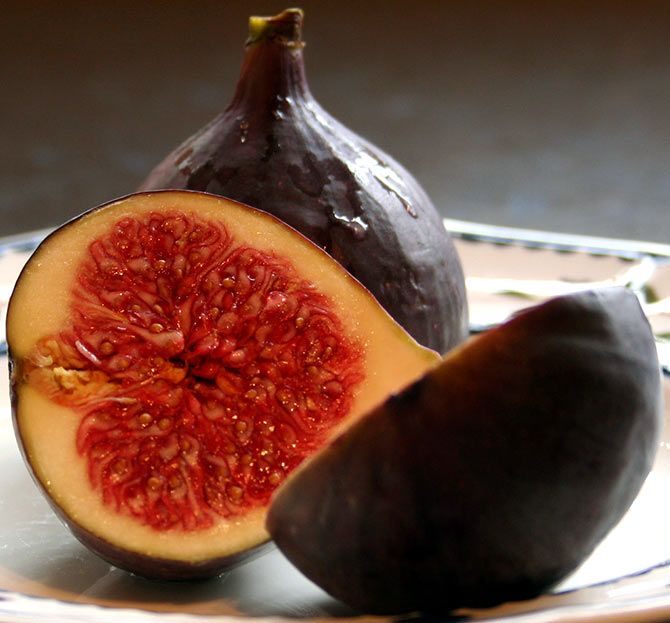
Texts of Ayurveda refer to this fruit as Falgu or Rajaoudumbara.
Figs are heavy to digest and have cold potency.
They are rich in fibre, vitamin B6, copper, potassium, manganese and pantothenic acid.
According to principles of Ayurveda figs mitigate Vata and Pitta.
Photograph: Xerones/Creative Commons
10. Dhanyaka (Coriander)
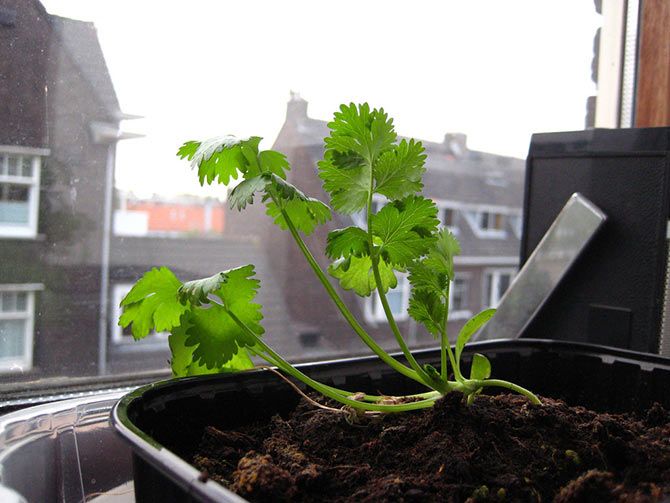
In Ayurveda, coriander is classified as a herbs that relieve excessive thirst and excessive cold.
It helps in improving digestion and taste, in relieving bad odour (bad breath).
It is good for heart, vomiting, asthma, COPD, wheezing, breathing difficulty, cough, cold, hemorrhoids, worm infestation, fever, anorexia and in mal absorption syndrome and diarrhea.
It balances all the three doshas.
Photograph: Xesc Arbona/Creative Commons









 © 2025
© 2025